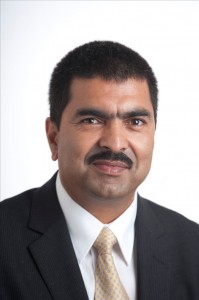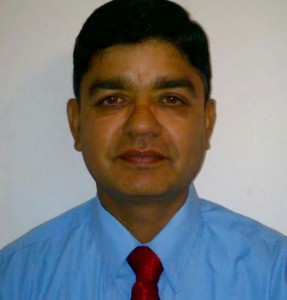Praveen Kumar Yadav, team coordinator for ELT Choutari, had a chit-chat with successful Nepali ELT mentors, Ganga Ram Gautam, Reader in English Education at Tribhuvan University and Dr Laxman Gnawali, Associate Professor at Kathmandu University School of Education, who are not only involved in English Language Teaching, but they has also been mentoring ELT practitioners over one and a half decade. This chat with the ELT mentors and experts delves into the tradition, practice cultural variations, and existing perception and attitude toward mentoring with reference to their own mentoring experience. Please enjoy this insightful conversation with these experts.
Choutari: Could you please briefly talk about mentorship culture in Nepalese context? How do students and teachers in Nepal perceive mentoring?
Gautam:

Mentorship is not a new concept in Nepal. Mentorship was an excellent way of building capacity of a person in the Gurukul education system and it continued for a long time in the tradition. Similarly, helping the young ones by the senior was in-built in our cultural system and the metaphor that we often used for mentorship is पन्थेदाउने which means training the novice person by engaging them in the work under the supervision of the seniors.
Currently, the western education system gave it a new name and it is being discussed in the education discourse. Informally, mentoring is there but at the formal level, it is not very widely used.
Gnawali:

Nepalese society had a tradition of mentoring model of education and training until the modern schooling system started for the public in the 1950s. Whether it was about the skills of family occupation and family crafts or the art of war, the experienced ones used to pass down the skills to the young generation by way of mentoring. Take for example a daughter learning to weave paddy straw mat or a tailor’s a children learning to stitch clothes or a priest’s son learning to perform rituals or a young prince learning the tactics of rule. In all cases, the knowledge transfer took place in the mentoring model. Later, the modern schooling system introduced mass education and the mentoring was no longer practicable for most trades. The teaching and learning now embraced cascade model.
From my interactions with the teachers and students, I have gathered that mentoring is not a common practice in the formal education. Though the traditional skills transfer still continues in the mentoring model, stakeholders of the mainstream education are happy to see the cascade model of knowledge transfer function. Ironically, teacher education in which mentoring model would make a difference follows a straight cascade model except in a very few cases.
Choutari: Kindly share with Choutari readers any of your mentoring experience (as a mentee) that you think has added values to your life.
Gautam:
When I finished my primary education in a formal school, I quit formal education and started learning Sanskrit in the Gurukul mode. There were five of us (students) and we had a Guru to teach us the Panini’s Grammar. Our Guru used to give individual lessons for all five of us according to the pace of our learning. In case he had to be absent for few days, he used to give me a lot of lessons to study and ask me to oversee the rest four students. He was in a sense mentoring me to help my friends during his absence and this is how I learned Sanskrit for about two years.
Later, I joined formal school again and after my SLC I have taught in schools and colleges. I have always received support from my seniors and I have learned from them formally and informally.
Gnawali:
I have been mentored by many in my life but a more relevant experience for the Choutari readers would be my experience as a mentee teacher trainer. I would like to share how I received mentoring support in my Masters’ course in Plymouth, England.
When I started my Masters in Marjon, Plymouth, I had no idea of teacher training, or andragogy for that matter. Tutors Tony Wright and Rod Bolitho would deliver lectures to give us concepts of EFL teacher training, teacher education and development. We would read relevant literature and also share our ideas among colleagues. We would hand in course papers. All these activities developed my understanding of what it was. However, the hands-on craft of teacher training was what I had never done before. Only after a half way into the course, I realised that the mentoring had started from the beginning. Most ideas and skills were given to us in a gradual and implicit way.
As the first step, we were shown videos of classroom teaching as well as lesson observation by a teacher trainer; we were given transcripts of classroom discourse; we were sent to real classes to observe live lessons. After the exposure, we would be invited to reflect on the same and also asked to link it to our own experiences of classrooms back in our country. Our queries would be responded to. Each session ended with a counseling tone: you are doing well. The homework would always include thinking questions.
The observation and reflection was followed by training course designed in groups. In groups of three or four, we developed a short-term teacher training course. The sessions were developed based on the course and we delivered micro-training sessions in the class. In this stage, each step was closely supported by the tutors. We were advised, counseled and given feedback on what and how we were doing.
In the third stage, I had to develop my own teacher training course for the Nepalese context. With the knowledge and understanding I had developed so far, I started off with my task. This time I saw there was a difference in the way I received support. I was only asked questions: what, how, why, etc. No close counseling. I felt left alone but I was able to complete my task. Much later, when I was reading literature on mentoring and teacher training, I understood that in mentoring, the mentee gets diminishing support. In the beginning the trainee is trainer dependent, later group dependent, and finally self reliant (Britten, 1998). The mentor lets the mentee go like the mother bird lets the nestlings fly. I came back to Nepal ready to independently design and deliver EFL teacher training.
Choutari: As a mentor, please tell us about few exciting things while mentoring your students or mentees. Also, include challenges if any during the mentorship.
Gautam:
When I moved from teaching to training, it posed a big challenge in me. Fortunately, I was with my Gurus Prof. Dr. Jai Raj Awasthi and Dr. Ram Ashish Giri who mentored me continuously in my training career. They were my role models and I used to attend their sessions with keen interest and tried to learn the techniques of teacher training. Also, they encouraged me to co-facilitate the sessions which tremendously helped me to build up my confidence. Their positive attitude and constructive feedback highlighting the strengths were the key aspects of their mentorship.
As a Mentor, I always feel that novice colleagues need opportunity and confidence. This is possible when we meaningfully engage them in the task as Shyam ji and Bal Krishna ji have done with the Choutari team(s). Choutari mentorship is a wonderful example of how mentorship gradually builds the capacity of the novice people.
The only challenge that I have seen in mentorship in Nepal (in general) is the attitudinal issue. If both the Mentor and the Mentee do not share the same wave length, mentorship does not grow well.
Gnawali:
Right after my return from England, I started training teachers in the postgraduate diploma program at Kathmandu University School of Education. The program had been designed with space for the mentoring to happen. With that space and my Plymouth experience, I mentored the trainees mainly during the practicum. Later with the launching of M. Ed. in ELT program, my mentoring skills were used to the fullest. I followed the same principles of mentoring I underwent in Plymouth and the results were visible. The M. Ed. scholars who entered the University with poor language proficiency which sounded like speech disorder ended up as a professional teacher trainer and voice givers in the radio programs. Those who did not have much trust on their own networking skills started coordinating teacher training programs with their own initiatives. Those who had writing and training potentials are now contributing to the teacher training and development activities for the Ministry of Education.
The most exciting moment for me about mentoring the future professionals is the moment when my own mentees become my colleagues in different initiatives, when I become redundant as my mentees do the activities I am supposed to do, and when I can seek advice from them when I am confused.
There are, however, challenges with the mentoring. Mentoring requires the mentor to be mindful of the details about the mentees, be there when they need support, and work together with them. It is not possible to practice mentoring in teacher training with a large number of participants. So, in the institutions where mass teacher training takes place, mentoring becomes a far cry. Likewise, most teacher educators in Nepal come from systems where they never experienced mentoring. Theoretically, they may be aware of the concept of mentoring but they lack the practical nuances of mentoring the to-be-professionals. A strong political will power to downsize the class size of the trainees and re-educate the teacher educators to prepare them for the mentoring model of training can definitely make a difference.
Choutari: Finally, would you like to say something about mentorship, and you can relate to Choutari Mentoring Project if you like?
Gautam:
Choutari Mentoring Project is a home grown organic model of mentorship. I think we should continue this in the future and present it as a case in the wider forum.
I am really very proud to be associated with the Choutri team since its establishment and I will try my best to contribute to this forum in the days to come as well!
Gnawali:
As Meggison and Cluterbuck (2005) state, “Mentoring relates primarily to the identification and nurturing of potential for the whole person. It can be a long term relationships, where the goals may change but are always set by the learner.” This highlights the need to allow the mentee to set their own goals and agenda. Moreover, mentoring is not a quick refill of an empty tank, it is a gradual process. So, the Choutari Mentoring Project needs to consider two things: mentors work with the mentee’s goals and agenda and the timeline is flexible depending upon the mentee’s needs.
My advice to the mentors is to follow bottom-up model: listen to the mentees, be flexible to modify the agenda and the timelines, and continue till the mentee is self-reliant.

enjoyed reading the comments.
Hope the mantees of the Choutari soon will be the mentors like these two successful ELT mentors of Nepal.